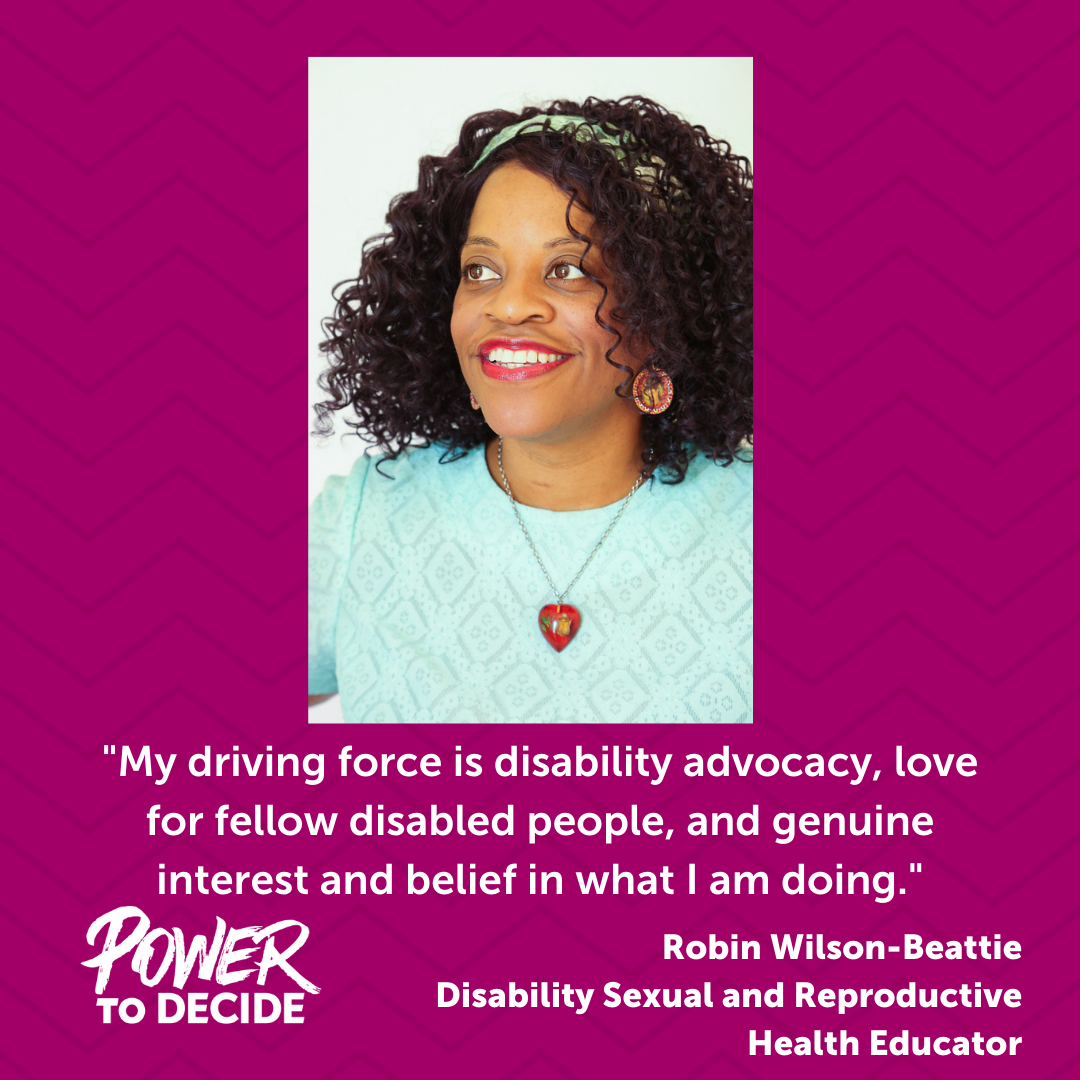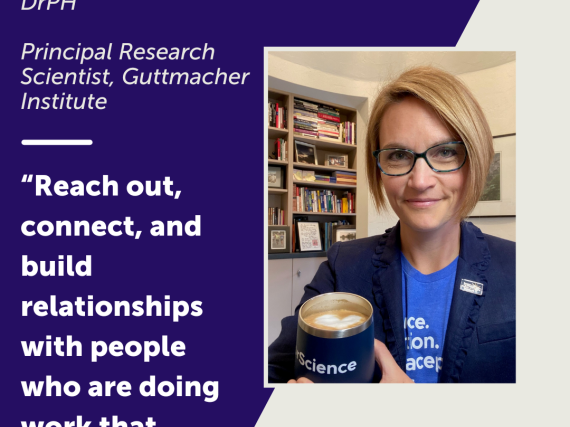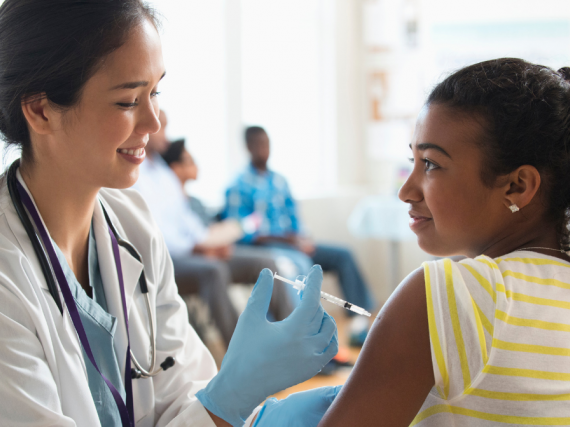November 2021 Power Player
At Power to Decide, we’re committed to uplifting the many individuals on the ground doing the work that matters most. Each month we highlight an individual who is championing the effort to support young people’s reproductive well-being. Check out this month's Power Player profile.
Robin Wilson-Beattie
Disability Sexual and Reproductive Health Educator, Research, Writer, and Speaker
What work have you done to ensure that all people have the information and access they need to make decisions that align with their intentions and improve their reproductive well-being?
I’ve written articles, delivered presentations, and webinars on everything from the issues and concerns with birth control methods disabled people should consider to discussing experience with abortion as someone with a disability in a Red State. I have spoken to students in medical school about sex and reproductive health concerns when you are disabled, and ways in which health care can be inclusive. As a decades long-advocate for reproductive freedom and choice, it’s important to me that disabled people know their reproductive rights. It is also imperative that non-disabled professionals respect disabled reproductive health care choices. I’ve written and spoken about respecting and supporting these choices to the medical community, special education teachers, sexual health educators, and university students.
How did you get started in your field?
I started off grassroots—turns out I have been involved in sexual health education since I became a Red Cross certified HIV/AIDS peer educator in high school. After acquiring a physical disability while pregnant, I personally experienced the professional and public’s eugenics-laced negative attitudes towards disability, having kids, and disabled sexuality in general. That was what lit a fire under me to start speaking up about disability and sexuality. I started off as a volunteer speaker at events. I then met and became friends with Bethany Stevens, a disability and sexuality scholar and educator, who mentored and introduced me to the professional side of sexual education.
What is your driving force?
My driving force is disability advocacy, love for fellow disabled people, and genuine interest and belief in what I am doing. I believe in leaving the world a little better than how you’ve found it, and working to create positive change
What advice would you give to someone looking to effect change in the field that you currently work in?
Do not get into this field thinking you will make money as a disabled sex educator! If you are going to be dependent on the income, get a MPH, LCSW, therapy, or health care related degree in order to get hired by organizations and companies with funds to pay you. My other advice would be to stay abreast of what is happening in sex education internationally and collaborate with people around the world. We live in a global society. Cultures view sexuality very differently, and via educational exchanges, you can learn and adopt strategies that work for the population you typically serve.
Why should someone care about ensuring that all people—regardless of who they are or where they live—have the information and access they need to live their best life?
An educated population is a healthier population. When people are educated, the entire community benefits, as people have the tools to make those decisions and choices that help keep themselves and the people around them safer.



